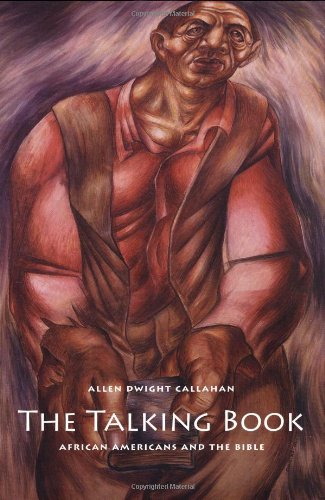
The Talking Book
African Americans and the Bible
- اطلاعات
- نقد و بررسی
- دیدگاه کاربران
نقد و بررسی

October 1, 2006
In this informative academic volume, Callahan (a New Testament professor at Brazil's Seminario Teologico Batista do Nordeste) examines how the music and literature of black Americans are shot through with biblical images. His opening chapter rehearses familiar history, explaining how white evangelicals introduced slaves to the Bible, and arguing that the Bible has given black Americans the resources to critique injustice. More innovatively, Callahan examines how black readers have engaged the Bible's "toxic" passages, like Genesis 9:25, which racists have read to say that dark skin is a curse. Callahan then turns to his central task: teasing out the various biblical themes that have been important to black writers and readers. He suggests that other scholars have focused too exclusively on the imagery of exodus in African-American culture. Of course, Callahan does find exodus in spirituals like "God's A-Gwinter Trouble de Water." But he also traces the theme of exile through the plays of August Wilson and the novels of James Baldwin, and he considers the central place of the name of Jesus in black folklore, belles lettres, and hip-hop. From W. E. B. Du Bois to Toni Morrison, black writers have invoked Jesus to signify "the suffering of black people." Callahan's investigations will doubtless interest students of African-American religion.

August 21, 2006
In this informative academic volume, Callahan (a New Testament professor at Brazil's Seminário Teológico Batista do Nordeste) examines how the music and literature of black Americans are shot through with biblical images. His opening chapter rehearses familiar history, explaining how white evangelicals introduced slaves to the Bible, and arguing that the Bible has given black Americans the resources to critique injustice. More innovatively, Callahan examines how black readers have engaged the Bible's "toxic" passages, like Genesis 9:25, which racists have read to say that dark skin is a curse. Callahan then turns to his central task: teasing out the various biblical themes that have been important to black writers and readers. He suggests that other scholars have focused too exclusively on the imagery of exodus in African-American culture. Of course, Callahan does find exodus in spirituals like "God's A-Gwinter Trouble de Water." But he also traces the theme of exile through the plays of August Wilson and the novels of James Baldwin, and he considers the central place of the name of Jesus in black folklore, belles lettres, and hip-hop. From W. E. B. Du Bois to Toni Morrison, black writers have invoked Jesus to signify "the suffering of black people." Callahan's investigations will doubtless interest students of African-American religion.
Copyright 2006 Library Journal, LLC Used with permission.

October 1, 2006
The Bible has been central to the acculturation of African Americans since slavery, providing comfort to slave and slave master alike and providing a hope for deliverance since then. Religion professor Callahan parallels biblical images of exile, exodus, and prophets as expressed in the lives of African Americans. Through history, spirituals, literature, politics, and culture, he illustrates how black figures such as Harriet Tubman, Martin Luther King Jr., and Louis Farrakhan, among others, have evoked the biblical figure of Moses in messages of deliverance from bondage and racism. Callahan traces the use of the Bible to "civilize" slaves, admonish them to obey their masters, promote the desire for literacy, and provide a code for expressing resistance and hope for justice. He examines the various exodus movements, from the slave South to freedom in the North and various efforts to return to Africa, and the search for the faith and fortitude to remain an exiled people in America. A powerful look at the intersection of religion and African American culture.(Reprinted with permission of Booklist, copyright 2006, American Library Association.)




دیدگاه کاربران